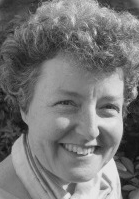A Platonist and a Sophist discuss Quality
 “Catherine Rowett has been a Lecturer in Philosophy at the University of East Anglia, Norwich (since 2003), Reader in the School of Archaeology, Classics, and Oriental Studies at the University of Liverpool from 2000 to 2003, and before that Reader in the Department of Philosophy at the University of Wales, Swansea. Her publications include Rethinking Early Greek Philosophy (1987) and Eros Unveiled: Plato and the God of Love (1994), as well as the chapter on Heraclitus in the Routledge History of Philosophy, Volume 1 and many articles on a wide range of issues in Ancient Philosophy from the Presocratics to the Early Christian period.” From Amazon.com
“Catherine Rowett has been a Lecturer in Philosophy at the University of East Anglia, Norwich (since 2003), Reader in the School of Archaeology, Classics, and Oriental Studies at the University of Liverpool from 2000 to 2003, and before that Reader in the Department of Philosophy at the University of Wales, Swansea. Her publications include Rethinking Early Greek Philosophy (1987) and Eros Unveiled: Plato and the God of Love (1994), as well as the chapter on Heraclitus in the Routledge History of Philosophy, Volume 1 and many articles on a wide range of issues in Ancient Philosophy from the Presocratics to the Early Christian period.” From Amazon.com

It’s been approximately two thousand five hundred years since Socrates, Plato and the Sophists roamed ancient Athens. It’s been about that same amount of time then since a Sophist discussed Quality with a Platonist. You can see my modern day Sophist response to Catherine Rowett the Platonist academic’s review of Zen and the Art of Motorcycle Maintenance by clicking here.
My thanks first and foremost to Catherine Rowett for doing what so few ancient greek academics have done by acknowledging the existence of Robert Pirsig’s insights into ancient greek philosophy. While her views toward them are mostly antagonistic; writing a paper on them is largely a step forward. Thanks also go to Dr. Ant McWatt who provided final draft comments.
The abstract is as follows:

